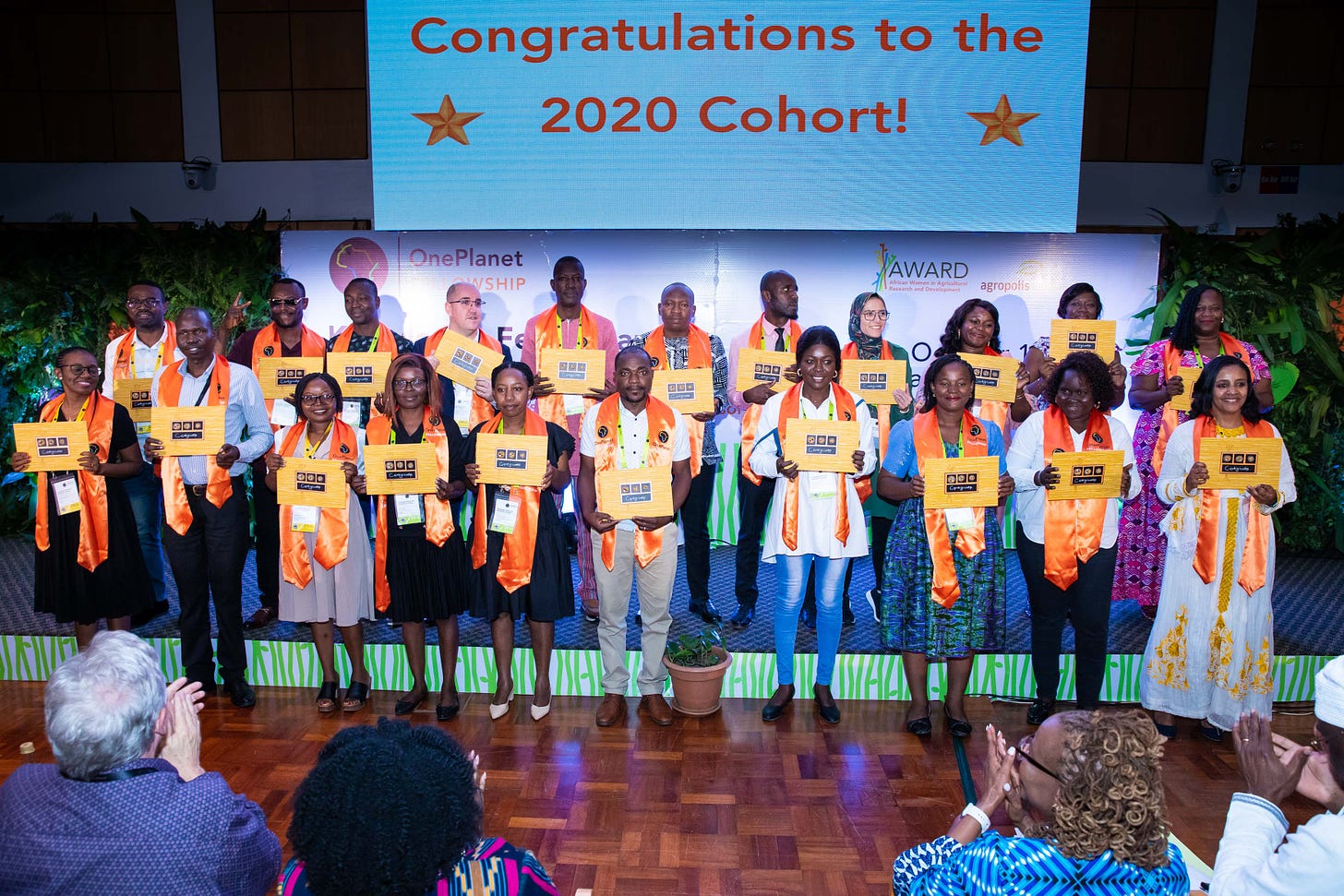African Scientists Drive Climate-Smart Solutions in Agriculture
The continent's food systems are under severe threat, while the risk of infectious diseases, including neglected tropical diseases (NTDs) and vector-borne diseases, rises.
NAIROBI, Kenya—Africa, despite contributing the least to global greenhouse emissions, bears the heaviest burden of climate change.
The continent's food systems are under severe threat, while the risk of infectious diseases, including neglected tropical diseases (NTDs) and vector-borne diseases, rises.
Amidst these challenges, African scientists are stepping up with innovative solutions to foster climate resilience in agriculture. One such initiative is the One Planet Fellowship, a flagship program sponsored by African Women in Agricultural Research and Development (AWARD).
The Fellowship has trained 87 African scientists over an intense three-year period, equipping them to address climate challenges through mentorship with experts from Africa and Europe.
Raheli Elibariki, a Tanzanian environmental scientist, is one of these fellows. As a research officer at the Tanzania Industrial Research and Development Organisation, she has led a project that promotes the use of biomass briquettes as an alternative to wood fuel.
“The widespread use of wood fuel in Tanzania has resulted in deforestation and health risks,” she explained.
“Around 33,000 people in Tanzania die prematurely each year from indoor pollution caused by wood-burning.”
Raheli has used her training and mentorship from the One Planet Fellowship to mentor other scientists and raise awareness within her community about the benefits of biomass briquettes made from locally available materials, like coconut shells.
Not only is this fuel cleaner and cheaper than wood, but it also has potential socio-economic benefits, especially for women and girls who often spend hours searching for firewood. “Women can now spend more time on productive activities like agriculture, and girls have more time for education,” she noted.
However, scaling up these innovations requires more than technical expertise. Raheli emphasized the importance of partnerships: "We need proper machines, funding, and laboratory facilities to improve the quality of briquettes and make them widely accessible."
Molly Akello Okoth, a Kenyan scientist, is another example of the impact of the Fellowship. Her work focuses on improving drought tolerance in dryland cereals like sorghum, which feeds over 500 million people across 30 African countries.
“Sorghum is versatile—it can be used in multiple ways, from being boiled like rice to being popped like popcorn for snacks,” she explained. Molly’s research, which also aims to breed pest-resistant varieties of sorghum, helps reduce input costs for farmers and limits the environmental damage caused by pesticide use.
Through the One Planet Fellowship, Molly has embraced mentorship, passing on her knowledge to other scientists from both Africa and Europe. “Mentoring is powerful,” she said. “It builds the next generation of scientists equipped to tackle climate change.”
Programs like these are helping to develop innovative, climate-resilient solutions, such as using climate-smart crops and sustainable farming practices to protect Africa’s food systems from extreme weather.
At the heart of these efforts is the One Planet Fellowship, supported by AWARD, which seeks to build the next generation of African leaders in climate science.
The Fellowship aligns with the larger goal of creating policies that ensure climate-smart, sustainable diets and food systems are accessible to all.
Ruth Okawa, Country Director of The Global Alliance for Improved Nutrition (GAIN), echoed the need for collaboration at a recent One Planet Fellowship graduation event.
“No institution or government has all the answers to the climate change crisis. We need to work together to create solutions that reflect the expertise, resources, and ideas of our communities,” she remarked.
The One Planet Fellowship, along with AWARD’s continued support, is a testament to the power of collaboration and mentorship in combating climate change.
Through the efforts of scientists like Raheli and Molly, Africa is laying the foundation for a more secure, resilient agricultural future.



